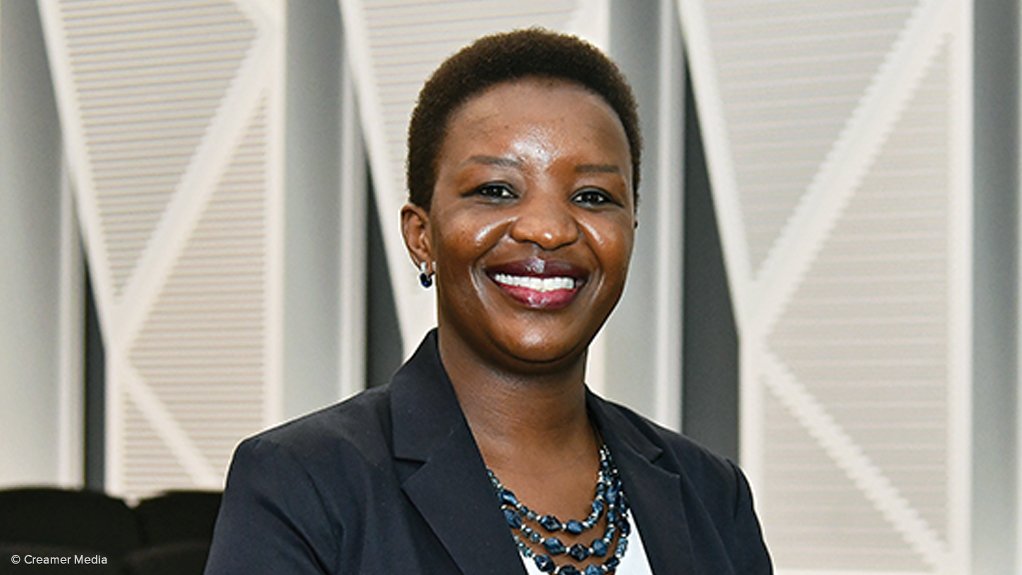Business Leadership South Africa (BLSA) CEO Busi Mavuso has defended the organisation’s decision to respond to a request by former Eskom CEO André de Ruyter to fund a private investigation into crime and corruption at the State-owned utility and has also confirmed that BLSA provided R18-million to support the initiative.
However, she insists that BLSA had no role in the appointment of George Fivaz Forensic & Risk, nor in vetting the lead investigator Tony Oosthuizen, who has been identified in media reports as having been an apartheid military intelligence operative who allegedly claims to have killed 20 anti-apartheid activists.
A News24 exposé describes some of the allegations arising from the investigation, including one implicating Cabinet Ministers directly in criminality at Eskom, as “wild and untested”.
De Ruyter alluded to some of these allegations during a bombshell interview on eNCA earlier this year, which led to his early departure from Eskom, as well as a recent Parliamentary hearing organised by the Standing Committee on Public Accounts (Scopa) on April 26.
At that hearing De Ruyter reiterated that corruption, criminality and sabotage remained a significant problem at the utility and drew a direct link between such acts and the current loadshedding crisis.
He also defended the efforts made to investigate acts of criminality and reported that the intelligence gathered was shared with various senior government officials, as well as with the law-enforcement authorities, which he believed had acted on some of the findings.
De Ruyter highlighted that President Cyril Ramaphosa announced in his State of the Nation Address that an intelligence-led operation had led to 43 arrests.
The former Eskom CEO claimed that it also led to the deployment of soldiers at four power stations and the raiding of four ‘black sites’, where coal purchased by Eskom was being diverted to other markets.
De Ruyter confirmed that the investigation was funded privately, but he did not name BLSA or Mavuso, who was a board member of Eskom when the funding was approved.
However, when questioned on the intelligence report at the Scopa hearing De Ruyter said Eskom was not the contracting party and that he was not aware of the terms of the contract,
“The appointment of a private intelligence organisation was not done by Eskom, it was not done by using Eskom funds, so no public funds were expended and Eskom was not the client or the beneficiary of such an appointment.
“I was aware of the contract, but not the terms of the contract that had been concluded,” De Ruyter said, adding that because no public funds were involved the issue fell “outside of the Scopa purview”.
It has been reported that up to R50-million was raised to fund the investigation, but Mavuso said she was aware only of the R18-million provided by BLSA, which had been extended on an arms-length basis.
The funding, she added, did not require BLSA board approval, as it was extended in terms of an approved operational budget to support government in combating crime and corruption, as well as to bolster the capacity of the State to tackle the crisis at Eskom.
“Our overriding objective is obviously the enhancement of the South African economy with an intention of creating a conducive trading environment.
“Not only is Eskom central to South Africa's economy, but it is the single biggest threat that we face as a country and therefore a resolution to its problems is critical for business, for the country, for the economy and for South African citizens.”
Mavuso said De Ruyter had approached BLSA directly to fund the intelligence operation, which was intended to augment and complement the efforts of law enforcement authorities to root out corruption and criminal activity at the utility.
“It was therefore Eskom and André in particular, who brought in George Fivaz Forensic & Risk to conduct the investigation.
“BLSA obviously had no say in the matter of this appointment, as this was not a BLSA report,” she stressed, while still underlining some of the successes that had flowed, including the arrests.
Business Unity South Africa CEO Cas Coovadia backed Mavuso and BLSA, arguing that the support extended to Eskom to investigate crime and corruption had been the “correct thing to do”.
Coovadia argued that it was crucial that the collaboration under way between business and government to tackle crime and corruption, as well as the electricity and logistics crises, was not disrupted as a result of some of the issues that had arisen around the private investigation.
EMAIL THIS ARTICLE SAVE THIS ARTICLE ARTICLE ENQUIRY
To subscribe email subscriptions@creamermedia.co.za or click here
To advertise email advertising@creamermedia.co.za or click here











